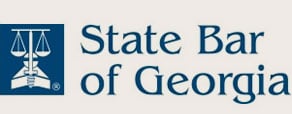
Those wanting to file for bankruptcy often wonder if you lose everything when you file for bankruptcy, or if there are any exemptions that allow them to keep their house and car. Loss of property is also a common concern among clients who have set aside funds in their 401(k) plans or other retirement plans, retirement investments, and government or private pensions.
Good news is that a large portion of your retirement money and personal property is out of the reach of Bankruptcy Court. This is made possible by a Georgia law called the "exemption law." The exemption law sets specific rules about what you can protect when filing for bankruptcy.What is the Exemption law in Georgia?
Georgia state law controls which property you can exempt from bankruptcy rather than federal law. Even though bankruptcy cases are filed in federal court, the Bankruptcy Code permits Georgia and other states to set their own rules for exempt property.
In the past years, exemption law was one of the toughest in the country. However, the Georgia legislature liberalized the exemption law a few years ago, which proved beneficial for people filing for bankruptcy. As the Georgia exemption law continues to offer less protection for your property when compared to the exemption laws in other states, the changes that took place to the bankruptcy laws in 2005 do not affect the Georgia exemption rules much. Section 44-13-100 of the Official Code of Georgia defines the Georgia exemption law.
Property that can be exempted
Certain types of properties have been identified by the exemption law that cannot be seized by the creditors or trustee in a  bankruptcy. For example, in case of a married couple filing for bankruptcy jointly, the real estate exemption is doubled to $43,000. In case of an individual, the first $21,500 of equity in real estate is exempt. Household items worth $5,000 are also exempt. These include goods that are used daily such as furniture, and electronics, including televisions. The value of most of these items is determined as it would be at a garage sale or auction.
bankruptcy. For example, in case of a married couple filing for bankruptcy jointly, the real estate exemption is doubled to $43,000. In case of an individual, the first $21,500 of equity in real estate is exempt. Household items worth $5,000 are also exempt. These include goods that are used daily such as furniture, and electronics, including televisions. The value of most of these items is determined as it would be at a garage sale or auction.
401(k) plans are exempt
Bankruptcy judges in Georgia have determined that pensions and 401(k) plans are exempt. If a retirement plan carries a penalty for early withdrawal, then that is also exempt. Debtors can discharge up to $50,000 of credit card debt even if they have a 401(k) of $100,000 which they get to keep.
$3,500 of equity in a vehicle is also permitted to be exempt under the exemption law. The individual can also apply any unused portion of their real estate exemption to gain additional exemptions.
If your property exceeds your exemptions, then you can use $5,000 of your real estate exemption and also use $3,500 of your vehicle exemption.
The Georgia exemption law works differently in case of Chapter 7 and Chapter 13 bankruptcies. The exemption law will determine what makes best for you.
If you have questions about bankruptcy and want to speak to a bankruptcy lawyer, give us a call at 229-247-1211.






